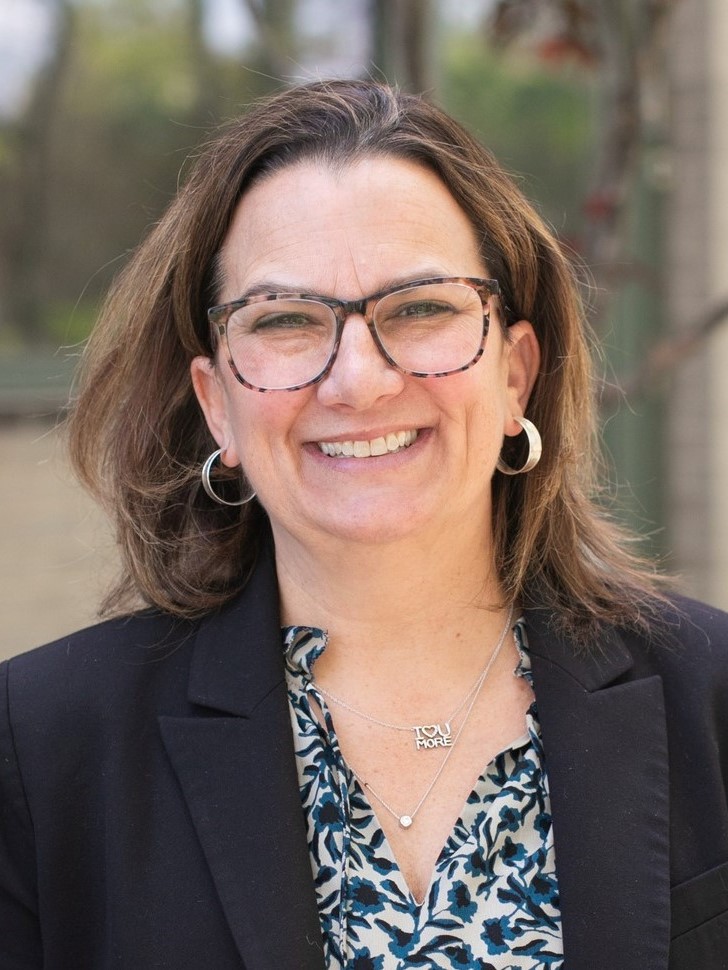
Heather Bradley-Geary
"The crux of community and the economy is always housing," said Heather Bradley-Geary, a Johnson County resident. "People can't succeed in our country without an address -- you can't get a job, social security card or photo ID without an address. I believe it's my job to make a housing a human right."
Heather works for Vecino Group, a national supportive housing developer working to end homelessness. Their developments provide residents with additional supportive services -- and they can live there permanently. "We need to ensure folks have all the supports to be able to stay housed," Heather shared. "We need to make sure we're not screening people out of housing. A lot of management companies have a lot of rules to even get into housing. We're working to screen people into housing."
Vecino Group partners with local non-profits and neighbors to discover what is best for a community. The group does not currently have a development in Johnson County, but Heather believes it would be beneficial. "To be honest, homelessness is solvable in Johnson County," she shared, citing that compared to other locations, the amount of people who need permanent housing in the county is attainable.
"I want us to understand that not everybody comes from wealth in Johnson County, and I don't want it to be a negative thing to talk about affordable housing. I would love to have affordable housing by where I live," she shared. "To serve the whole community, we have to talk about supportive housing and affordable housing. My dream is to have real conversation about that and for it to be about community. Good community is inclusive of everyone."
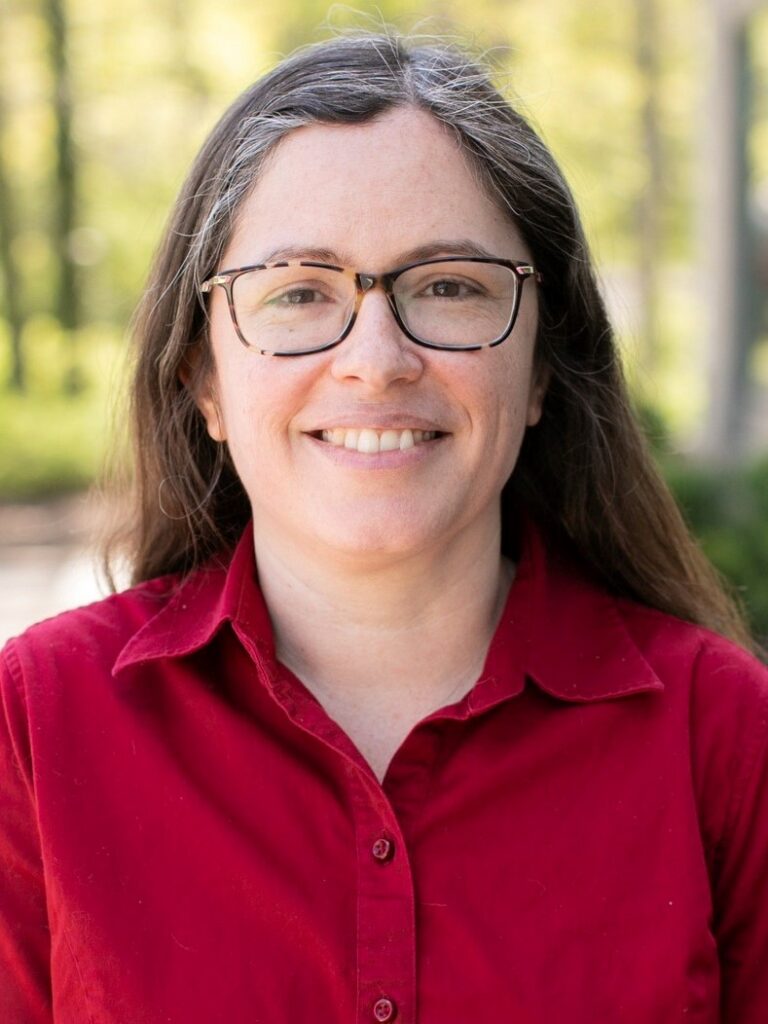
Rita Carr
“The most common cause of the rise of homelessness across the country is the lack of affordable housing,” said Rita Carr, Director of Community Planning for UCS. As the lead agency of the Continuum of Care for Homelessness in Johnson County, UCS helps coordinate across systems to ensure a response for various systems, monitor gaps, provide data and work on innovative solutions. “When we can look at the big picture of what we have, what's working and where the gaps are, we can work together,” shared Rita.
Over the past 10 years, Johnson County has seen an increase in the number of individual adults experiencing homelessness. While the county has a family shelter, it does not have a year-round emergency shelter for individual adults. “Although there are shelters in other parts of the Kansas City metro area,” Rita explained, “most of those are 45 minutes away, which takes somebody away from their support system, their feeling of safety. They end up staying outside. It is almost impossible to get out of homelessness without a roof over your head and some support.”
“There has been some lack of awareness in the past and an assumption that we do not have homelessness here,” Rita continued, explaining that many people who are experiencing homelessness have an income, but the gap between their income and rising housing costs is substantial. “This is the time to really pay attention and see how we can respond before the problem becomes insurmountable.”
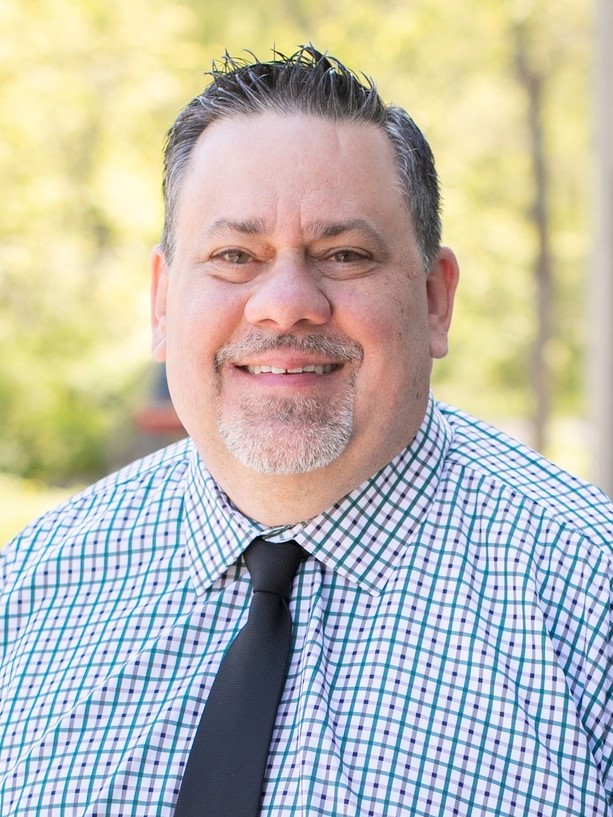
Tim DeWeese
"We talk a lot about Johnson County being a good place to live, play and work," said Tim DeWeese, Director of Johnson County Mental Health Center. "But it's really difficult to promote that when it may be out of reach for a large portion of the population."
Tim will be a panelist at our Human Services Summit on June 21st. The event will focus on housing insecurity in Johnson County, a topic Tim believes is crucial to address. One key concern is the lack of a year-round emergency shelter for individuals experiencing homelessness in Johnson County.
"The point of most need is when a person has nowhere to stay," said Tim. "That is one of the greatest needs we have, to provide people emergency shelter and then begin to work filling in the gaps or addressing needs they have. It's a continuum. Getting an emergency shelter is just one step in that continuum."
The continuum of care requires the whole community to engage. "Homelessness is not a mental health issue. It's not a police issue. It's a community issue that needs a community response," Tim shared. "When you build that continuum of supportive services, that's when you are able to address the issue of chronic homelessness."
Tim hopes to see this in action at the Human Services Summit. "It's a perfect opportunity to come together and identify some actionable steps to move these issues forward. The time for action is now."
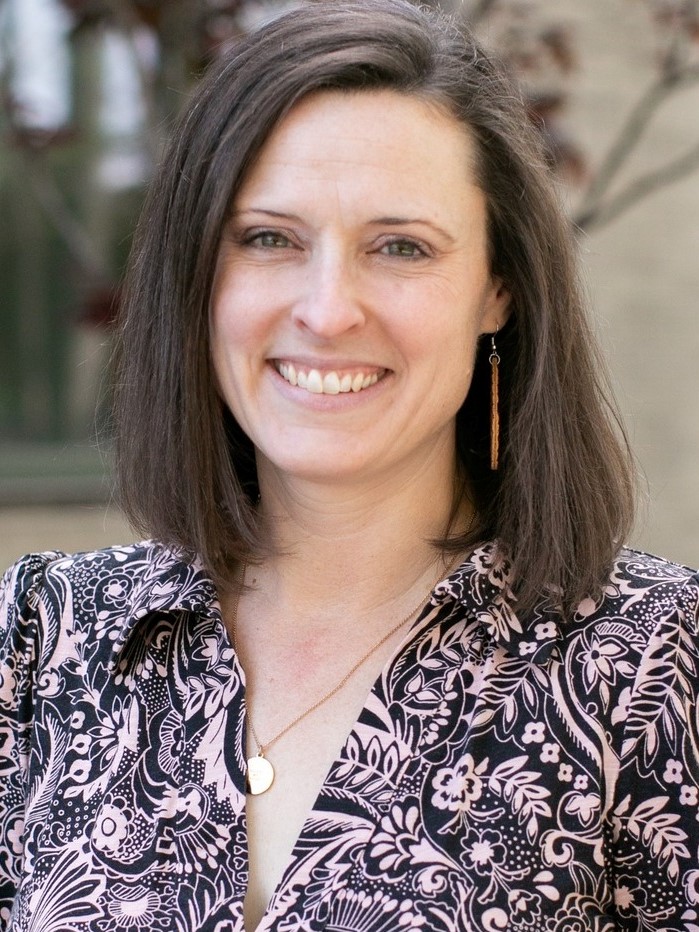
Megan Foreman brings a public health background to her role as Johnson County's newly-created housing coordinator position, which she began in January 2023. "The way you look at health or wellness is multifaceted. If you don't have a stable place to live, it might make your employment challenging, getting healthcare challenging, or where your kids go to school. It is so central to people's lives, that when it is missing or unstable, it's really impossible to do so many other things."
One of her goals is to move upstream and think about the ecosystem of our community. "I want to take a public health approach. What's not working that's causing people to have these housing crises?"
Megan works alongside agencies, non-profits, residents and government officials in the community to address housing priorities. The Board of County Commissioners has identified housing as a top priority for 2023 and 2024. "Solutions for our unhoused population has been something the community has been calling for for a long time," Megan shared, noting community listening sessions that have been held to gather feedback. "The county recognizes that it's not a one size fits all solution and that our activities are going to have to be as diverse as the population that we serve."
"Johnson County is conscientious about wanting to do some sense-making out of what we're hearing and think collectively about the right way to move forward," said Megan. "What's a way that's sustainable, and what is every agency's role in finding those solutions? And for the folks who live and work in Johnson County, we also need to be thinking about, as a resident, what's my role in helping move these solutions forward?"
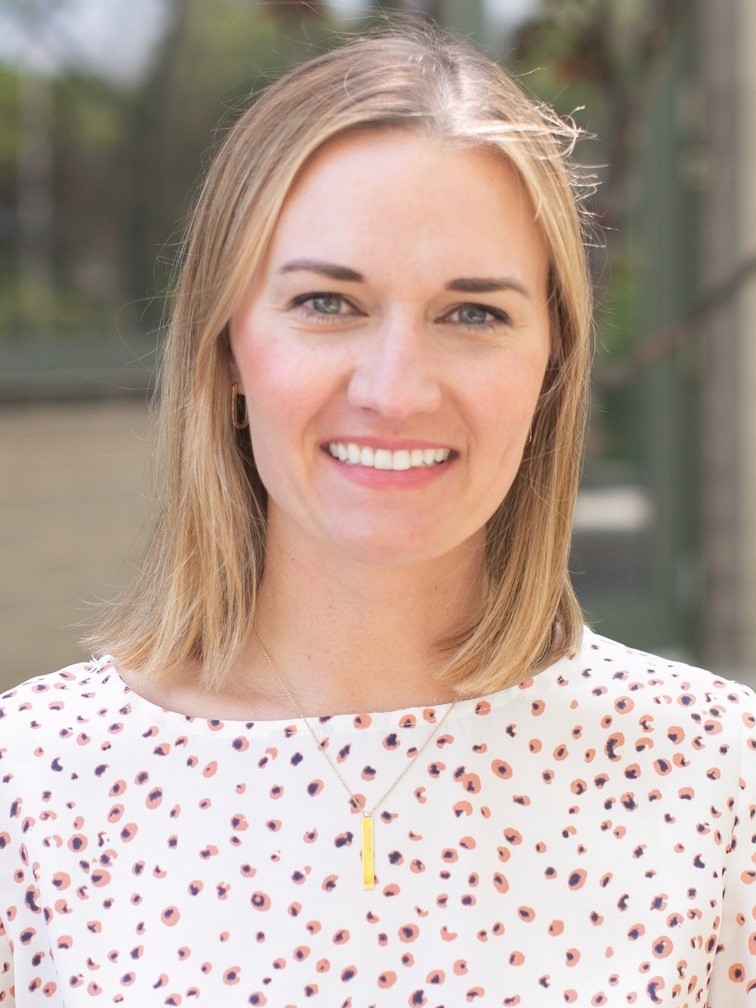
Lindsay Hicks
"If you would've asked me if we would get nearly 10 acres of land in Olathe, I would say no way. But it's happening," said Lindsay Hicks, President & CEO of Habitat for Humanity of Kansas City. She shared about a fully Habitat-built pocket neighborhood that will break ground this summer in partnership with a local church community in Olathe that will contain 20 single-family homes. "We are intentionally partnering to uplift the community, to bring visibility that attainable housing is needed and attainable housing is beautiful and attainable housing makes a stronger community here in Johnson County."
"This is our opportunity to invite the community into this space," Lindsay shared, noting that Habitat for Humanity offers a unique experience for volunteers to help make the neighborhood a reality. "We're going to invite people to be involved and learn about the types of individuals we're going to partner with for home ownership. For me, there's nothing that helps me understand the importance of this work than being a part of it. My hope is that individuals walk away feeling like they can be part of the solution."
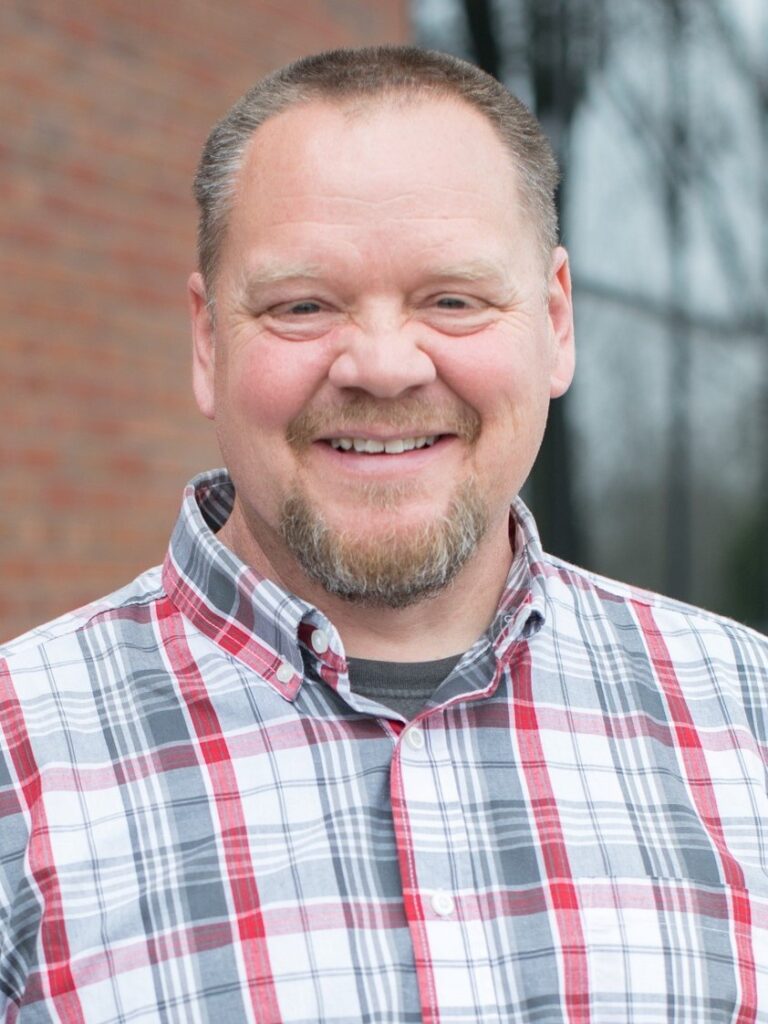
Lee Jost
“Housing is a basic human need. Community is another basic human need,” said Lee Jost, the Executive Director of NCircle, an organization that helps justice-involved individuals connect to opportunities to end cycles of incarceration. “Housing should be possible in the community where you work, would like to raise a family and where you have access to resources that provide stability.”
Lee shared that four in ten people who are homeless in Johnson County are homeless for the first time, and half have income, but no stable housing. “I can identify with those people,” he shared, citing a season in life where his family was one paycheck or one small, unexpected event away from not being able to afford housing. “If we had hit just the right conditions, we would have been seeking a safe place to support us. Johnson County needs a place where individuals who hit that moment can find support and tools to successfully relaunch.”
“I am motivated to work towards stable housing for all residents because I love living in Johnson County," Lee continued. "I am proud that our county leads the nation in its mental health and criminal justice work. I want to tell others how our community is home to all who want to live here – from the paraprofessional in my children’s school to the executive who leads a company. I want my community to support each other when challenges hit.”
“When societal challenges have to be solved, society needs to be present,” Lee shared. “Elected officials, county staff, nonprofit agencies, local businesses, communities of faith, and engaged community members can leverage our networks and expertise to engage the whole community in solving homelessness in Johnson County.”

Joe Karlin
"I'd like to see homelessness addressed by educating the community that we do, in fact, have homeless individuals in Johnson County," said Joe Karlin, Co-Founder and Executive Director of Dignity Project. "The key is working together."
Community members and professionals from all sectors are invited to join this conversation. "People should attend the summit to learn about the problem and contribute to solutions," Joe shared. "These are our brothers and sisters. Many individuals are in this situation through no fault of their own. They deserve the resources they need to build a better life."
One key topic at the summit is the current lack of year-round emergency shelter for individuals experiencing homelessness in Johnson County. "The fact is that individuals experiencing homelessness are in the community," Joe shared. "The lack of a shelter doesn't mean they don't exist, but instead that we have chosen not to provide resources."
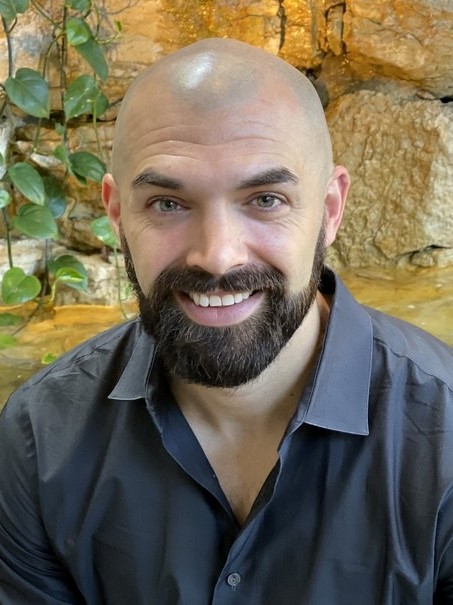
Jarrod Sanderson
“The worst kept secret about homelessness is that it’s so much more expensive to do nothing and to allow the status quo to continue,” said Jarrod Sanderson, Chief Operating Officer of Nautical Manufacturing & Fulfillment. “The sheer cost of doing nothing stands on its own as a very compelling argument to act.”
Jarrod, who worked in social services for the better part of 20 years, says he’d like to see a realistic and comprehensive approach taken to address homelessness. “We need coordinated public and private interventions so that we don’t simply move the scope of the challenge from one bucket to another without ever addressing it on the whole,” he said.
“It’s more about a community’s philosophy toward homelessness than it is about programming,” Jarrod continued, sharing that if a community is more focused on deservedness than understanding of need, too many resources will be spent creating systems where people must prove they have a need instead of allocating resources to addressing the need in a comprehensive way. “A lot of the lack of progress is that we don’t yet have collective agreement that the need is worth addressing for *everyone* experiencing hardship, not just those individuals who we’ve deemed ‘worthy’ of helping.“
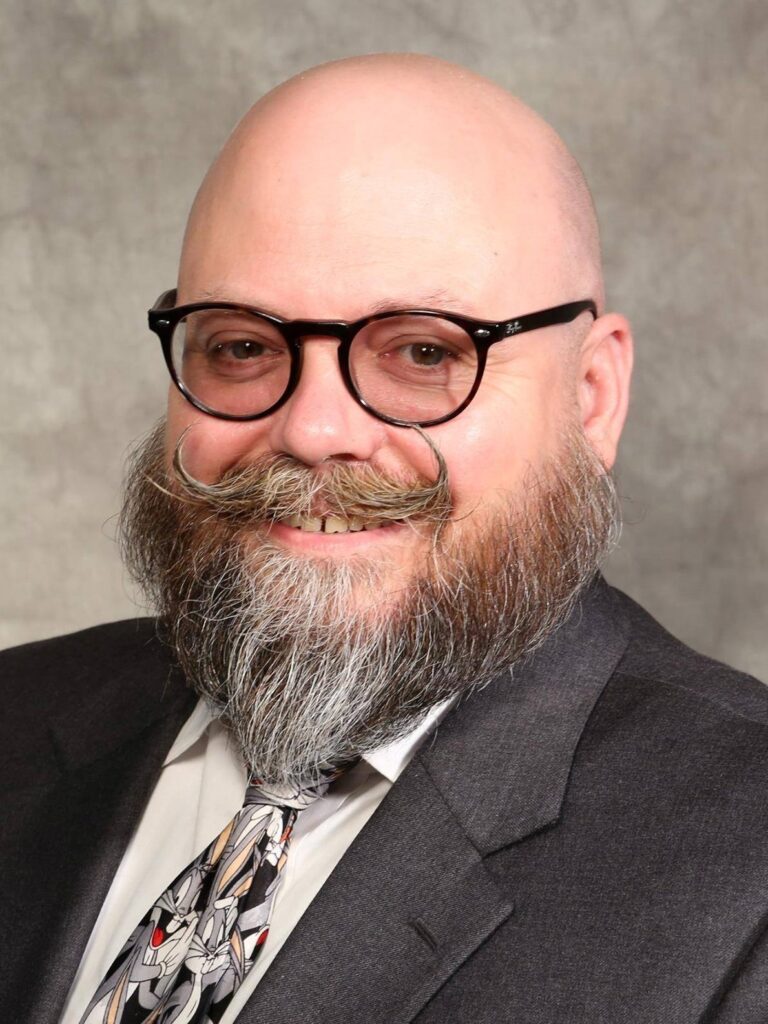
Robert Welch
“For every person experiencing homelessness you see on a corner, there are four others you do not see,” said Robert Welch, who is a board member of Dignity Project and works at SelectQuote Insurance Company. “Many are working. It is hard to be productive at work, or even show up on time, when you do not know where you are sleeping. If employment is lost due to these issues, the ability to exit homelessness is nearly impossible.”
In his twenties, Robert experienced homelessness in the Wichita area. Early intervention helped him maintain employment and was crucial to his future success. "I share my experience to help change the conversation about who those experiencing homelessness are and what their potential is. It is easy to look away or ignore this group. When we do, we are pushing out a group of people with the potential to make our lives, our businesses and our community better."
The longer we wait to support people, Robert explained, the deeper the problems become. “They just need a way to stop falling, and most can get themselves out,” he continued, sharing that a year-round, individual shelter in Johnson County would help provide a needed resource at just the right time, before people experiencing homelessness fall too deep. Robert would like to see people from across the community learn more since people experiencing homelessness are right here in our county. “They are your friends, your family members, your co-workers, and workers in the offices, stores, restaurants, and warehouses where you do business,” Robert shared. “I hope people understand the human needs behind the issue. Hopefully we will start to identify where we have gaps and find resources to fill those needs either from government, non-profit, religious or business entities.”

